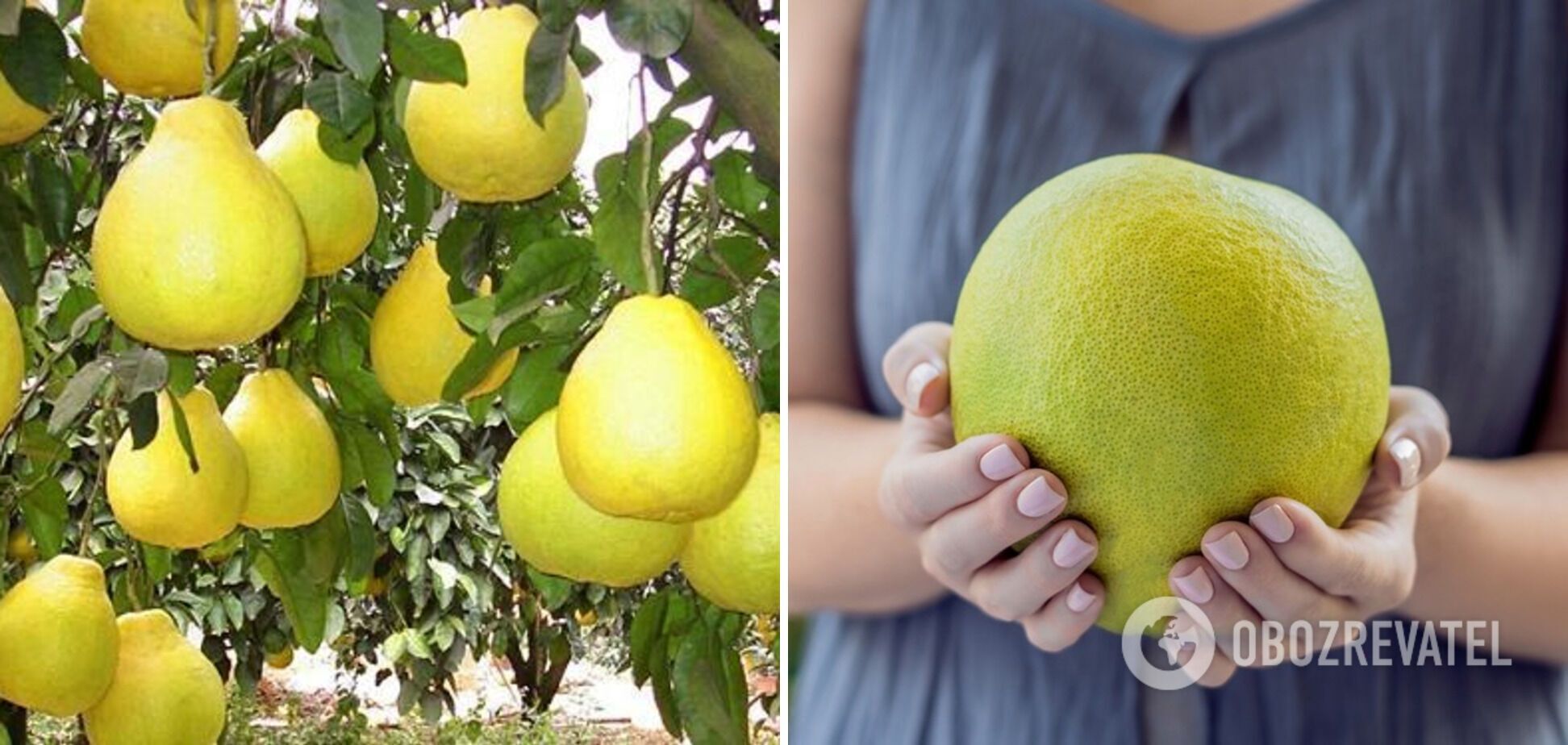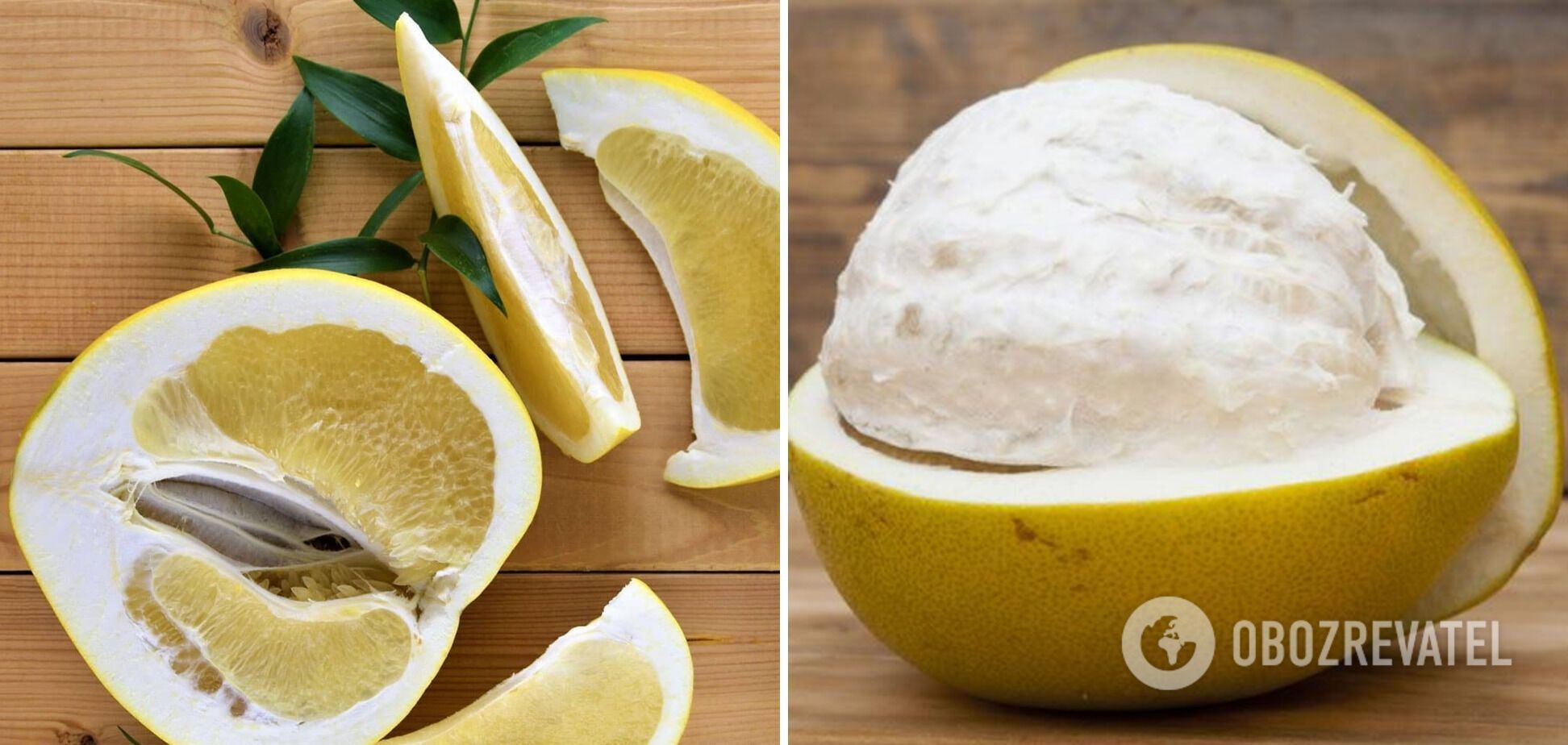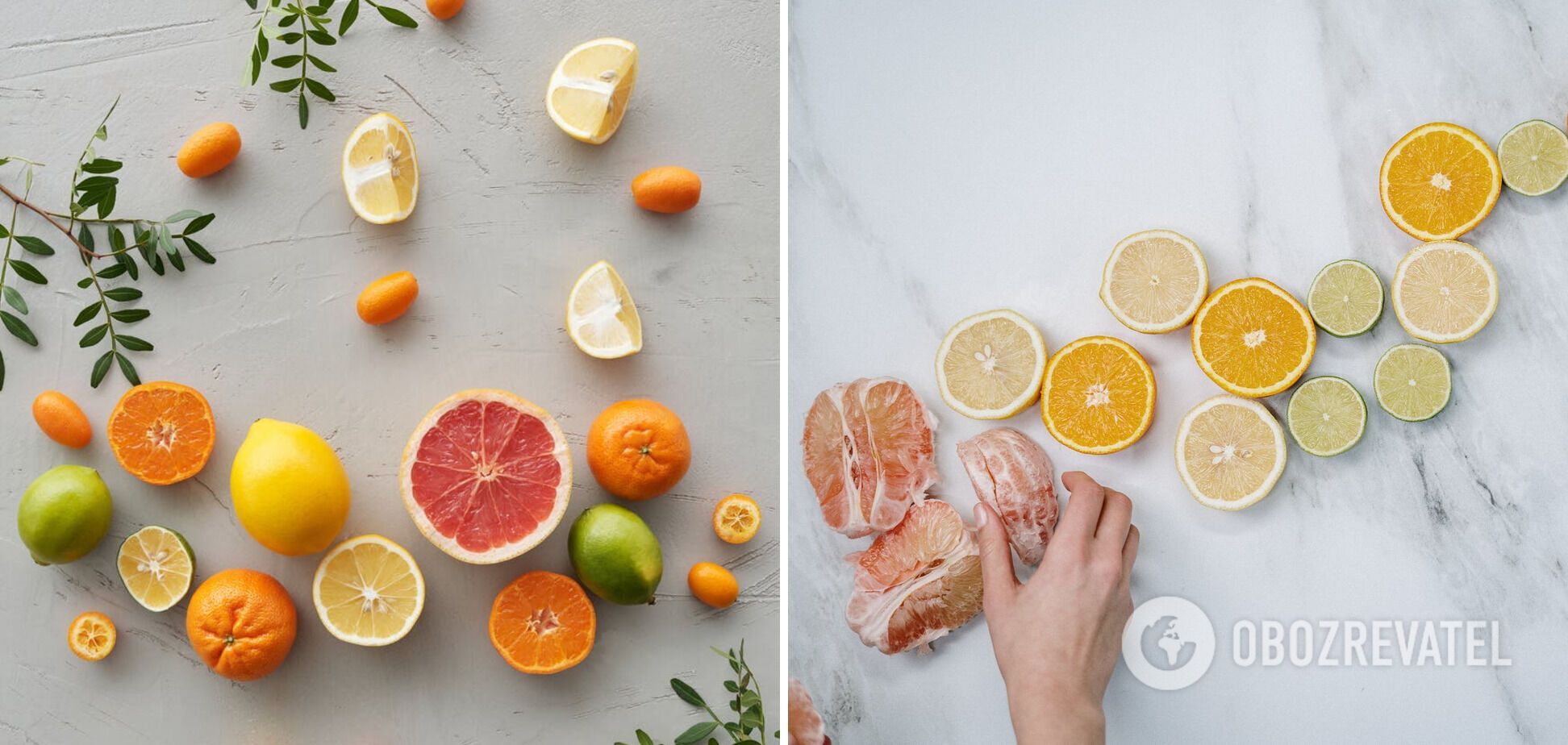LS Food
How to choose ripe and juicy pomelo: some useful tips
Pomelo has no bitterness or acidity, which is typical for many citrus fruits, but it does have natural malt and a rich flavor. However, to buy a really high-quality fruit, you need to know a few of its features.
Tips to help you choose ripe and fresh pomelo are published on the kuhnyatv_official Instagram page.
How to choose a ripe and juicy pomelo:
1. If the fruit is ripe, it should be firm enough. If the peel is easily pushed through with a finger, the fruit is overripe and most likely has already begun to deteriorate.
2. The larger the fruit, the juicier the flesh. It be pear-shaped, then it is 1.5 kg. If it is round, it is at least 1 kg.
3. A quality fruit has a smooth, even skin, without any damage. There should be no dents or specks of burgundy color on the surface. The color may be dark green, but this does not affect the taste.
Famous Ukrainian nutritionist Svetlana Fus shared how many calories pomelo contains and what are the benefits of this fruit on her Facebook page.
Pomelo is the largest of all citrus fruits. It is characterized by dry flesh and a delicate sweetish flavor.
The expert notes that this fruit should be included in the diet in winter.
It is the largest of the citrus fruits. It is sweeter and less acidic than grapefruit. Pomelo flesh is drier than other citrus fruits. In China, there is a tradition of giving the fruit to each other on New Year's Eve. It is sold in a film covered with a mesh - this protects the product from damage and makes it last longer.
How many calories does pomelo contain
100 g of this delicious fruit contains 88% water and only 38 kcal. That's why it can be a great substitute for sweets. In addition, it is a source of dietary fiber, which effectively speeds up digestion. It is enough to eat just a few pieces to feel full.
Traditionally, pamelos are eaten raw and fresh as the flavor and aroma are so good. It is also added to a variety of desserts and salads.
Like other citrus fruits, pomelo contains vitamin C, vitamins B1, B2, beta-carotene, and calcium.
This little-known fruit is a valuable source of bioflavonoids - antioxidants. It is recommended for people with atherosclerosis, weakened immune system and skin problems. It is very useful for the prevention of influenza and other acute respiratory viral infections, as in addition to vitamin C, it contains fruit acids and essential oils, which are natural phytoncides.
Adults are advised to eat no more than 100 g of citrus per day.































